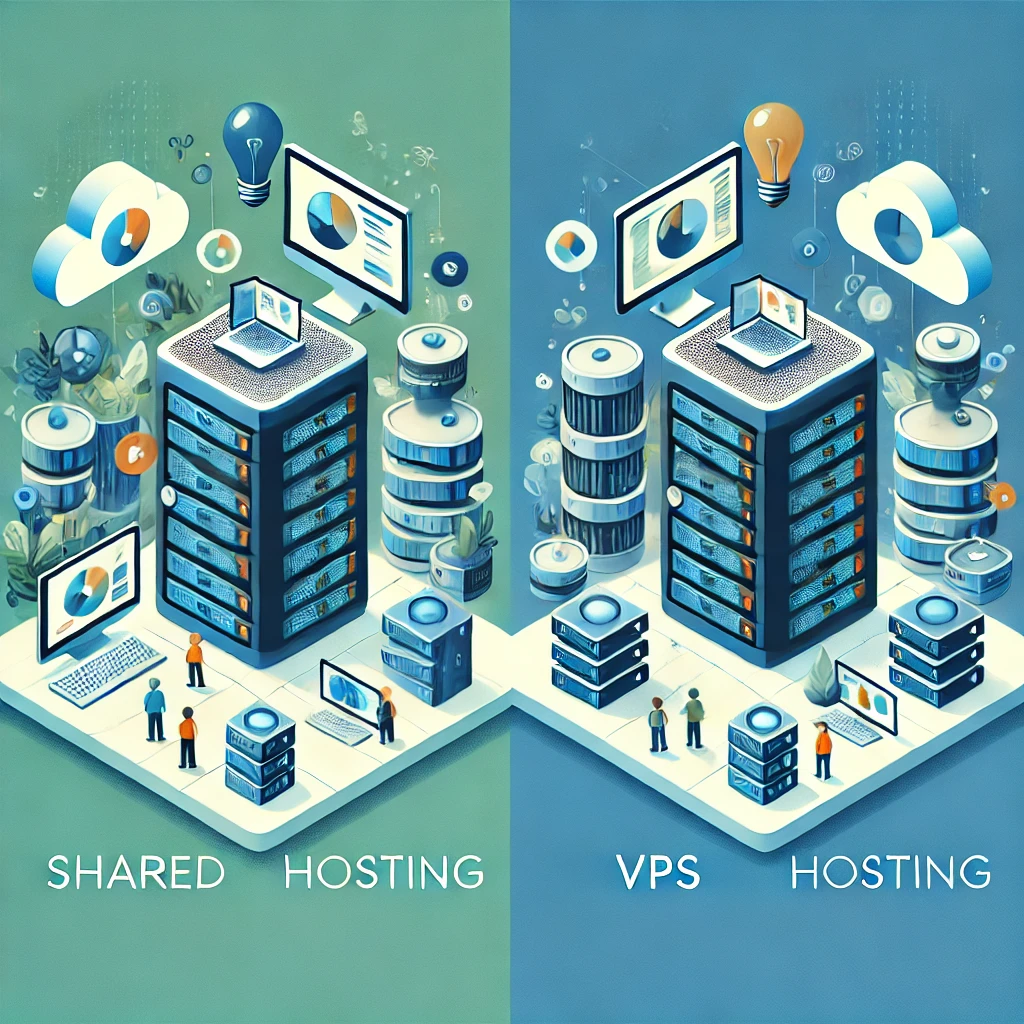
Starting with shared hosting is a popular choice for new websites and small-scale projects due to its affordability and simplicity. However, as your website or business grows, shared hosting may no longer meet your needs. Upgrading to a Virtual Private Server (VPS) can provide the resources, flexibility, and control required to scale successfully. Here’s a guide to help you decide when it’s time to make the switch.
1. Your Website Is Outgrowing Shared Hosting
Shared hosting means your website shares server resources like CPU, RAM, and storage with many other sites. This setup can become a bottleneck as your website grows.
Signs You’re Outgrowing Shared Hosting:
- Frequent downtime or slow loading times.
- Limited storage space.
- Resource usage warnings from your hosting provider.
Why Upgrade to VPS: A VPS gives you dedicated resources, ensuring consistent performance regardless of traffic spikes.
2. Your Traffic Is Increasing
Shared hosting is ideal for low-traffic websites, but as your audience grows, the limited bandwidth and processing power can hinder user experience.
When to Upgrade:
- You’re experiencing traffic spikes that slow down your site.
- Your monthly traffic exceeds what your shared hosting plan supports.
Why Upgrade to VPS: VPS hosting scales with your traffic, ensuring your site remains fast and responsive during peak times.
3. You Need Better Performance
As websites become more complex with dynamic content, multimedia, and e-commerce functionality, performance requirements increase.
When Performance Becomes an Issue:
- Pages load slowly, especially during high traffic.
- Visitors complain about poor user experience.
Why Upgrade to VPS: VPS hosting provides more CPU and RAM, which directly enhances loading times and overall performance.
4. You Need Greater Control Over Your Server
Shared hosting limits your ability to customize server settings or install specific software. This can be restrictive for businesses with unique requirements.
When Control Matters:
- You need to install custom applications or software.
- You require advanced configurations, such as custom security measures or caching mechanisms.
Why Upgrade to VPS: With root access in a VPS environment, you have complete control over your server, enabling customization to meet your needs.
5. Your Website Requires Enhanced Security
Shared hosting means sharing a server with other websites, which can increase the risk of vulnerabilities. If security is a priority, you may need a more isolated environment.
When Security Becomes Critical:
- You’re handling sensitive customer data, such as for an e-commerce site.
- Your site has been targeted by malicious attacks.
Why Upgrade to VPS: VPS hosting provides a more secure, isolated environment, reducing risks associated with shared resources.
6. You’re Launching Resource-Intensive Projects
Certain projects demand more server power than shared hosting can provide, such as:
- Hosting large databases.
- Running applications that require high CPU or RAM usage.
- Managing multiple websites from a single server.
Why Upgrade to VPS: With a VPS, you have the resources and flexibility to handle demanding projects.
7. You Need to Scale Your Business
Shared hosting can become a barrier to growth as your website demands increase.
When Scalability Is Key:
- Your website’s growth is limited by shared hosting’s resource caps.
- You need a hosting plan that can expand as your business grows.
Why Upgrade to VPS: VPS hosting offers scalability, allowing you to increase resources without migrating to a new hosting provider.
8. You’re Ready for a Cost-Effective Upgrade
While VPS hosting costs more than shared hosting, the benefits often outweigh the additional expense. For businesses seeking better performance, control, and reliability, the investment is worth it.
Why Upgrade to VPS: VPS hosting provides excellent value by combining performance, scalability, and control at a reasonable cost.
Conclusion: Make the Move to VPS Hosting
If your website or business is experiencing any of the challenges listed above, it’s time to consider upgrading to VPS hosting. A VPS ensures your website has the resources, control, and security to perform at its best, even as demands grow.
At Hosteons, we offer a range of VPS hosting plans powered by high-performance Ryzen processors and designed for scalability. Our transparent pricing, free backups, and 24/7 support ensure a seamless transition. Contact us today to find the perfect VPS hosting solution for your needs!
